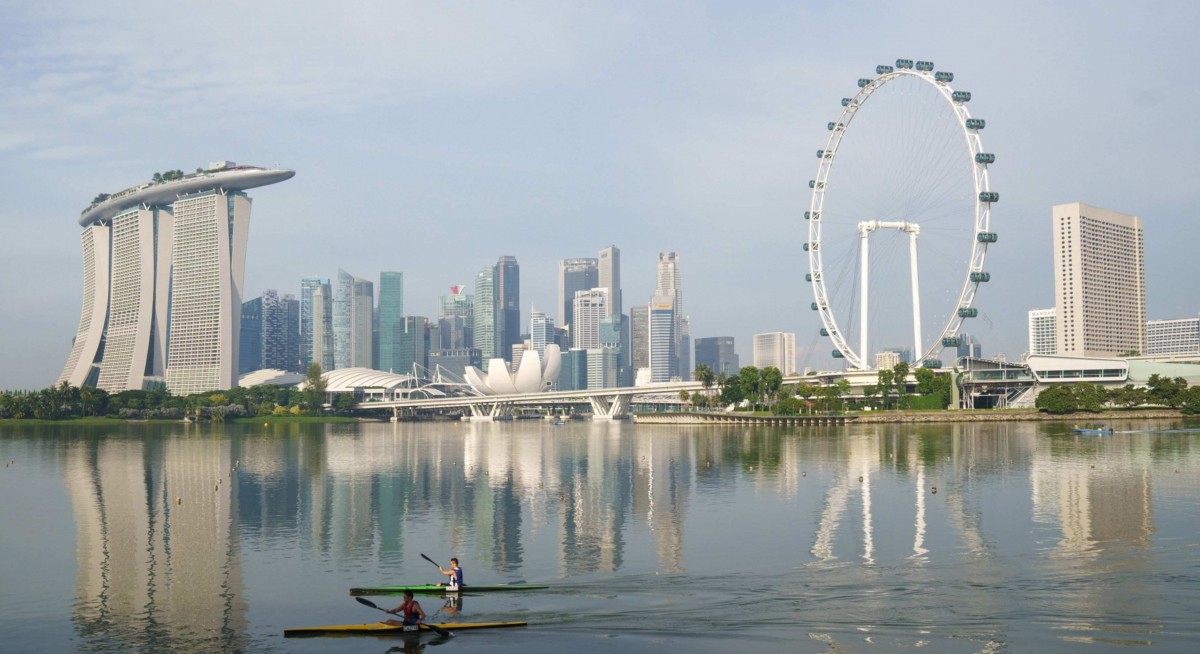Singapore’s carbon tax applies to all facilities producing 25,000 tCO2e or more in a year. This covers some 30 to 40 large emitters, like oil refineries and power generation plants, which contribute 80% of Singapore’s greenhouse gas emissions.
The Bill also introduced a framework for International Carbon Credits (ICC), tradable certificates that companies can use to offset up to 5% of their taxable emissions. The certificates represent projects that reduce or remove emissions, such as reforestation.
Wong said in February that household utility bills will rise in tandem with a higher carbon tax. At $25 per tCO2e, the rise in carbon price would bring utility bills for an average four-room Housing Board flat up by some $4 a month.
“Global warming doesn’t pause because of inflation," says Minister for Sustainability and the Environment Grace Fu in Parliament on Nov 8. “So, rather than holding back our plans, the government has been, and will continue to, provide support in a targeted manner to affected businesses and households, as part of our long-standing commitment to an inclusive, low-carbon transition.”
See also: Singapore sets 2050 net-zero target, unveils national hydrogen strategy
Wong’s Budget speech also set out plans for Singapore’s carbon tax rate to reach between $50 and $80 per tCO2e by 2030. Even at this peak, however, Singapore's carbon tax rate still sits well below international recommendations.
The World Bank-supported High Commission on Carbon Prices proposes that carbon taxes reach US$50-US$100 ($70-$140) by 2030.
Carbon pricing varies wildly around the world. Yet, the global average emissions price is only US$3 per tonne, according to the International Monetary Fund (IMF).
See also: Singapore Pavilion launched at COP27 in Egypt, listcos to join talks and panels
Last June, the IMF proposed an international carbon price floor, divided into three tiers. To address such inconsistencies, each tonne of emissions should, by 2030, cost a minimum of US$75, US$50 or US$25, depending on whether the emission is in an advanced, high- or low-income market.
Emissions peak by 2028
Fu also said in Parliament that Singapore’s carbon emissions are estimated to peak “between 2025 and 2028”.
This clarifies Singapore’s accelerated net zero plans announced last month. On Oct 25, Wong announced that Singapore aims to achieve net zero by 2050 while bringing forward a peak on emissions before the decade is over.
Speaking at the start of the Singapore International Energy Week 2022, Wong also declared an intermediate goal of 60 million tonnes of carbon dioxide equivalent (MtCO2e) in 2030, down from 65 MtCO2e previously.
Fu says Singapore has submitted these goals to the United Nations Framework Convention on Climate Change (UNFCCC) — the second update to the country’s 2030 Nationally Determined Contribution (NDC).
“Peaking our emissions earlier than 2030 is significant and requires substantial transformations across industry, economy and society,” says Fu. “Unlike countries that have access to abundant abatement resources domestically, Singapore has to rely on external measures such as electricity imports and carbon capture, utilisation and storage.”
Fu will join the ongoing 2022 United Nations Climate Change Conference 27th Conference of the Parties (COP27) in Sharm el-Sheikh, Egypt, later this week.



